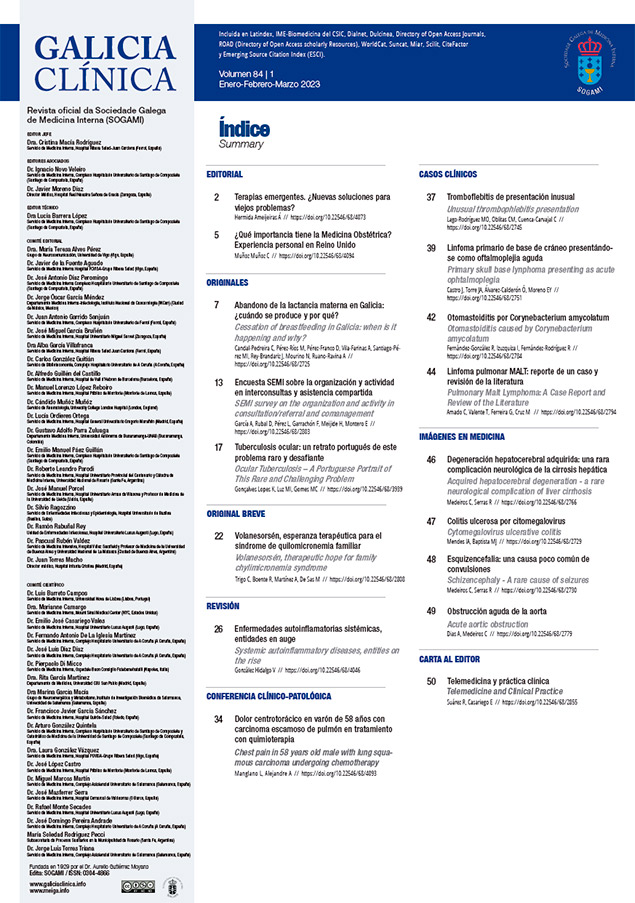Abstract
RESUMEN
Las enfermedades autoinflamatorias sistémicas son entidades relativamente recientes ocasionadas por disregulación del sistema inmune innato. Están ocasionadas fundamentalmente por mutaciones monogénicas, aunque existen entidades producidas por mutaciones poligénicas o de origen multifactorial. Tradicionalmente se han clasificado en función de la presencia o ausencia de fiebre, sin embargo, con el avance en el conocimiento de sus mecanismos patogénicos y de las vías de señalización involucradas, recientemente se aboga por clasificarlas en base a esto último, siendo los tres grupos más importantes de entidades autoinflamatorias monogénicas las interferonopatías tipo 1, las inflamasomopatías y las ocasionadas por disregulación en la vía del factor nuclear potenciador de las cadenas ligeras kappa de las células B activadas [NF-KB] (relopatías). En la presente revisión se aborda de forma general las principales vías implicadas, los principales síndromes de cada uno de estos grupos y el abordaje terapéutico.
ABSTRACT
Systemic autoinflammatory diseases are relatively recent entities causad by dysregulation of the innate ummune system. They are mainly caused by monogenic mutations, although there are entities produced by polygenic mutations or of multifactorial origin. Traditionally, they have been classified based on the presence or absence of fever, however, thanks to the advancement of knowledge of their Pathogenic mechanisms and the signaling pathways involved, recently it has been advocated to classify them based on the latter. The three more important groups of monogenic autoinflammatory diseases are type 1 interferonopathies, inflammasomopathies and dysregulation in the nuclear factor kappa light chain enhancer of activated B cells [NF-kB] pathway (relopahies). In this review, the main pathways involved, the main syndromes of each of these groups and the therapeutic approach are addressed.
© 2023 Galicia Clínica.
Complete article | Pdf article


